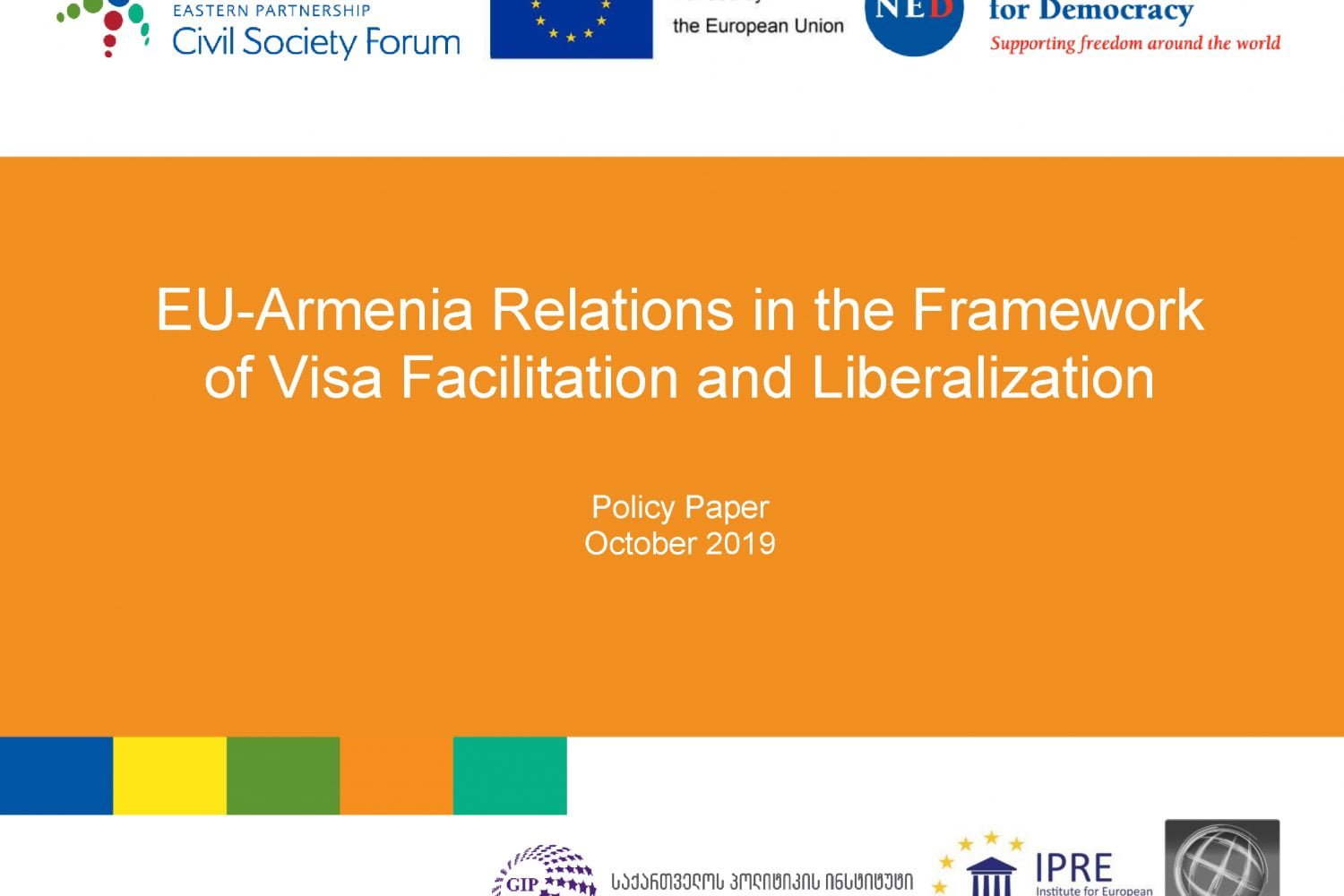2019-10-05 12:27:53
Obtaining a visa-free regime with the EU is one of the main goals set both in the EU’s Eastern Partnership and in the 2019 Programme of the Government of Armenia. The final stage for reaching the visa-liberalization agreement, namely the Visa-Dialogue between the EU and Armenia, has not been launched yet. Armenia and the EU face a high risk of irregular migration from Armenia.The EU also expects a strong political commitment from the Armenian government to carry out democratic reforms, and improve migration management, readmission, document security, human rights and the fight against corruption.
This paper highlights the Armenian authorities’ key achievements, such as the EU-Armenian cooperation in sectors of mobility and border management and the ratification of the 2014 Visa-Facilitation and Readmission Agreements. It details the rights and benefits that the Visa-Facilitation Agreement has provided to the citizens of Armenia. The paper highlights the main issues related to the full transition to biometrical passports, data protection, and readmission. The paper is based on statistical data about Schengen visa issuance and refusal rates over time, as well as the number of asylum-seeking applications from Armenian citizens. The paper concludes with series of recommendations that would assist the Armenian government in reaching a visa-free regime with the EU.
Reviewer and International Consultant:
- Alexandra Stiglmayer – Senior Analyst in Brussels, European Stability Initiative (ESI).
Author:
- Dr. Stepan Grigoryan – Chairman of the Board, Analytical Centre on Globalization and Regional Cooperation (ACGRC, Armenia).
The publication was produced within the framework of the project – “Facilitating Effective Visa Liberalization in Georgia, Moldova and Armenia through Experience Sharing“, implemented by the Georgian Institute of Politics (GIP, Georgia) together with the Institute for European Policies and Reforms (IPRE, Moldova) and the Analytical Center on Globalization and Regional Cooperation (ACGRC, Armenia).
This publication was produced with the financial support of the European Union. Its contents are the sole responsibility of Stepan Grigoryan and do not necessarily reflect the views of the European Union.
The project benefits from support through the EaP Civil Society Forum Re-granting Scheme (FSTP) and is funded by the European Union as part of its support to civil society in the region. Within its Re-granting Scheme, the Eastern Partnership Civil Society Forum (EaP CSF) supports projects of its members that contribute to achieving the mission and objectives of the Forum.
Grants are available for CSOs from the Eastern Partnership and EU countries. Key areas of support are democracy and human rights, economic integration, environment and energy, contacts between people, social and labour policies.




